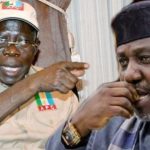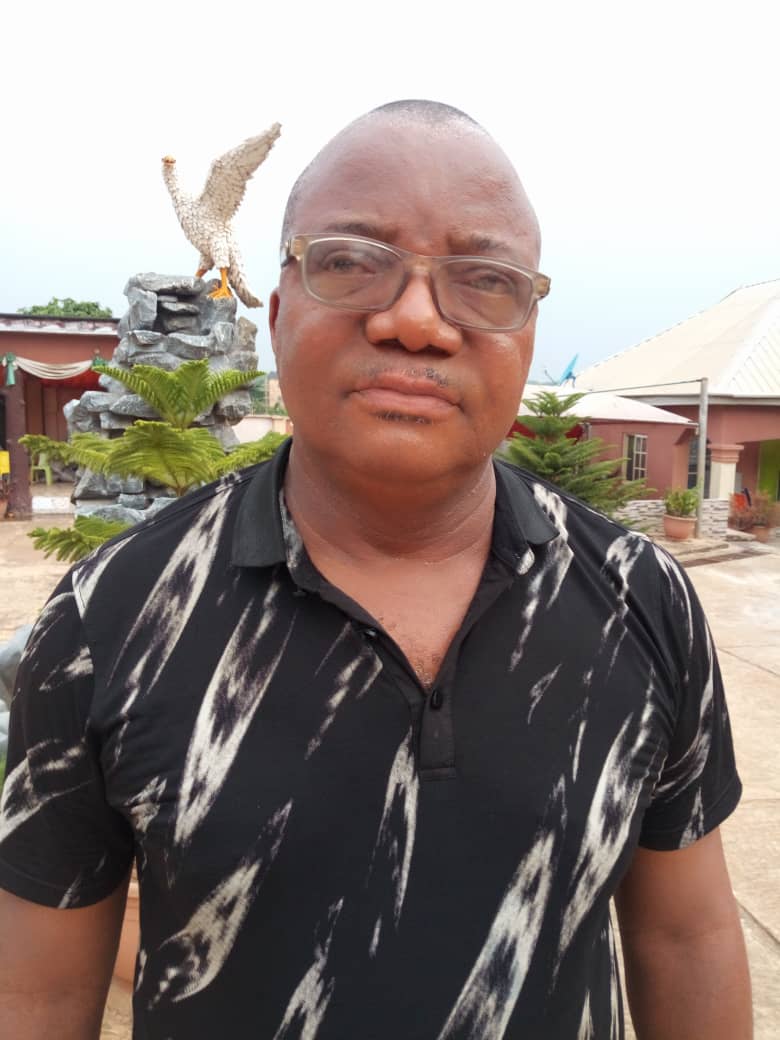The media is awash with a curious averment in the defence filed by Counsel to the All Progressives Congress (APC) in response to the petition filed by Alhaji Atiku Abubakar GCON, and the Peoples Democratic Party (PDP) against the election of President Muhammadu Buhari GCFR at the last Presidential election.
The APC has in the said Reply to the Petition contended inter alia, that Alhaji Atiku Aubakar was not qualified to contest to become the President of Nigeria because under Section 131(a) of the Constitution of the Federal Republic of Nigeria 1999 (as amended), a person who is not a citizen of Nigeria by birth is not eligible to aspire to become a President of the country. It is the further contention of the APC that Alhaji Atiku Abubakar who was born in 1946 in Jada, Ganye, Adamawa State, is not a citizen of Nigeria by birth because at his birth, Adamawa was not part of the Nigerian Colony of Britain. Adamawa was then part of the Sadauna Province which was part of the Northern Cameroon that was a UN Mandate Territory under British control. Adamawa only became part of Nigeria legally on 1st June, 1961 after a plebiscite through which the people of the Northern Cameroon voted to become part of Nigeria while their Southern counterparts chose to go with Cameroon. That is history and no one can fault that.
However, the question now is, “did the people of Adamawa join Nigeria under any terms that deny them the full birth right citizenship of Nigeria” And if the answer is no, “can a later law (Constitution) place any limits that were not there initially on the citizenship rights of the Adamawa people? Answers to the foregoing questions will proffer a resolution to the issue of Alhaji Atiku Abubakar’s eligibility to contest for the office of the President of Nigeria. As stated above, when Nigeria became independent on 1stOctober, 1960, the area now known as Adamawa State of Nigeria was not part of Nigeria. That area was then part of Saduana Province of Northern Cameroon that was administered by Britain under UN Mandate. However pursuant to the plebiscite conducted in 1961 for the people to decide whether the area would be joined to either Cameroun or Nigeria, the people of the then Northern Cameroon voted massively, by the records, to join Nigeria and this was effectively done by 1stJune, 1961.
Sequel to the independence of Nigeria in 1960, the Country in 1963 enacted what is today known as the 1963 Republican Constitution. In Section 7 of the said 1963 Constitution, Citizenship of the country was articulated and well provided for. In Section 7 (1), it was provided thus: “Every person who, having been born in the former colony or protectorate of Nigeria, was on the thirtieth day of September, 1960, a citizen of the United Kingdom and Colonies or a British protected person, shall become a citizen of Nigeria on the first day of October 1960. ………………….”.
Further down in Section 10 (1) of the same Constitution, it was also provided thus: “Special Provisions as to Northern Cameroons: 10 (1) for the purpose of determining the status of persons connected with the part of Northern Nigeria which was not included in the Federation on the thirty first day of May, 1961, the foregoing provisions of this chapter and subsection (3) of section 17 of this Constitution shall have effect as if:-
(a) For any reference to a particular date that there were substituted a reference to the last day of the period eight months beginning with the next day following that date; and
(b) For any reference to the former Colony or Protectorate of Nigeria (other than the second reference in section 7) there were substituted a reference to the part aforesaid; and.
(c) That other reference included a reference to the part aforesaid”
What does this mean ? In a nutshell, by Section 10 of 1963 Constitution of the Federal Republic of Nigeria.
(i) a reference to thirtieth September, 1960 for the purpose of Citizenship of Nigeria is taken as a reference to thirty first May, 1961 (eight months later) where it concerns people born in the part of Northern Nigeria that was not part of the Nigerian territory by October 1st, 1960.
(ii) Any reference to the former Nigeria Colony or Protectorate in the sections was deemed as a reference the former British Mandate Territory of Northern Cameroons that joined Nigeria on 1stJune 1961.
In simple English, it means that any one born before 31st May 1961 in that part of Northern Nigeria that effectively became part of Nigeria by 1st June 1961, became Nigerian citizens by birth the same way those who were born in the colony or protectorate of Nigeria became citizens by birth on 1st October 1960. By this Constitutional Provision all persons born in the former British Mandate territory that became part of Nigeria on 1st June 1961 are deemed to be citizens of Nigeria by birth as if they were born in the former Nigeria Colony or Protectorate before the independence in 1960.All rights, privileges and obligations pertaining to such citizenship by birth enured to such persons without any limitations.
By Section 25(1) of the 19999 Constitution, it is provided as follows:
“The following persons are citizens of Nigeria by birth, namely:-
(a) Every person born in Nigeria before the date of independence either of whose parents or any of whose grandparents belong to a community indigenous to Nigeria ……………………………
This is the provision which is being interpreted as making Alhaji Atiku Abubakar ineligible to be a President of Nigeria. But, the section with due respect, does not say what is being imputed to it. From the provision of Section 10 of 1963, it has long been established that those born in the former Northern Cameroun that fused into Nigeria in 1961 were accorded the same rights and privileges as those born in the former Colony or Protectorate of Nigeria before 1st October, 1960. Both sets of people are placed on the same legal pedestal as legacy citizens inherited by the country that came into being after they were born.
It therefore means that the reference in the 1999 Constitution to those born before Nigerian independence, that is prior to 1st October, 1960, impliedly includes those who joined Nigeria by 1st June, 1961 and whose citizenship by birth was duly accorded recognition vide Section 10 of the 1963 Constitution. This right of citizenship by birth became a permanent personal right of every of the concerned persons and cannot be taken away from them.
We respectfully submit that any interpretation of Section 25(1) (a) of 1999 Constitution to the contrary will be absurd. The intention of the makers of 1999 Constitution cannot in any way be to take away any citizenship rights that had enured to any Nigerian prior to the enactment of the 1999 Constitution. It is true that the 1963 Constitution is no longer operational in Nigeria, however, it is axiomatic that the repeal of any enactment does not affect any right that had accrued under the repealed law.
Since the Constitution of Nigeria had assimilated without any limitations, as Nigerians, persons born in the former Northern Cameroun, who are to rank pari -passu with persons born prior to Nigeria independence in the former Colony or Protectorate of Nigeria, any reference in the 1999 Constitution to persons born before Nigerian independence, we submit with respect, a fortiori, includes a reference to such persons born in the former Northern Cameroon who became Nigerians on 1st June, 1961. There is no way the 1999 Constitution can be interpreted as to limit the rights of those who became citizens of Nigeria in 1961 vide the plebiscite when no such limits were placed on them by the 1963 Constitution. We therefore submit strongly, that Alhaji Atiku Abubakar and his likes who were born in the former Northern Cameroon, became full blooded Nigerians by the provisions of the 1963 Constitution, as citizens by birth.
The 1999 Constitution does not intend to and in fact does not place any limits to their rights as citizens of Nigeria. Atiku’s rights rank pari-passu with that of President Muhammadu Buhari who was born in the Protectorate/Colony of Nigeria long before 1960 and whose citizenship by birth was also provided for and protected under Section 7 of the 1963 Constitution as well as Section 25 of the 1999 Constitution.
It will amount to monumental injustice and discrimination of the highest proportions if our Courts do interpret the provision of Section 25 of the 1999 Constitution as to exclude those born prior to the fusion of the erstwhile Northern Cameroon with Nigeria from the enjoyment of privileges and rights conferred on those who were born in the former Colony or Protectorate of Nigeria who are citizens by birth of Nigeria. And that is surely not spirit and intent of the law.
Chidi Nwuke Esq.
Principal Counsel
Gracean Solicitors
18a, Onikpeo Akande Street,
Off Admiralty Way,
Lekki Phase 1,






